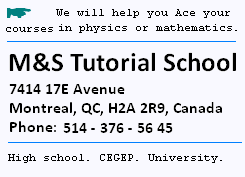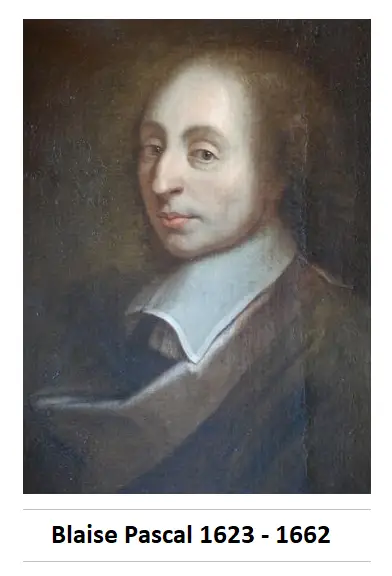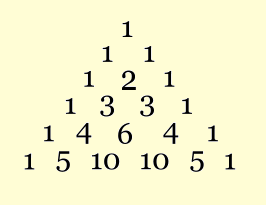Articles divers
© The scientific sentence. 2010

| |
|
Articles
Science and societies
Blaise Pascal
Blaise Pascal
Pascal's triangle
Pascal's wager
 Blaise Pascal is a physicist, mathematician, philosopher and theologian.
Blaise Pascal is a physicist, mathematician, philosopher and theologian.
He was born in Clermont-Ferrand on June 19, 1623 and died in Paris, France on August 19, 1662.
Blaise Pascal never went to school or university. He was educated by his father,
judge then tax collector, but of great culture.
In 1639, at the age of only 16, he wrote the "Essai pour les Coniques". In this short essay,
he announces some results he has obtained, but without providing any demonstration.
That year, moving to Rouen, Pascal conducted his first research in the field of physics.
He invented the first known manual calculator, now kept at the Conservatoire des Arts et Métiers in Paris.
In 1647, Pascal returned to Paris and devoted himself to scientific research. He conducts
experiments on atmospheric pressure, writes a treatise on vacuum, invents the hydraulic press
and the syringe, and perfects Torricelli's barometer.
 In mathematics, his theory of probability and his book «Traité du triangle arithmétique »,
in 1654, became famous. It is in this treatise that Pascal defines his arithmetic triangle,
known nowadays under the term Pascal's triangle.
In mathematics, his theory of probability and his book «Traité du triangle arithmétique »,
in 1654, became famous. It is in this treatise that Pascal defines his arithmetic triangle,
known nowadays under the term Pascal's triangle.
Blaise Pascal had used his mathematical work on probability for theological
purposes, in what is called " Pascal's wager", mentioned in the book
Pensées , a work defense of the Christian religion against skeptics and freethinkers.
Pascal's wager is a philosophical argument. His statement
is as follows: If God does not exist, the believer and the unbeliever risk little or nothing. On the other hand, if God exists,
the believer gains paradise while the non-believer is locked up in hell for eternity.
-- Abdurrazzak Ajaja
June 2022
|
|